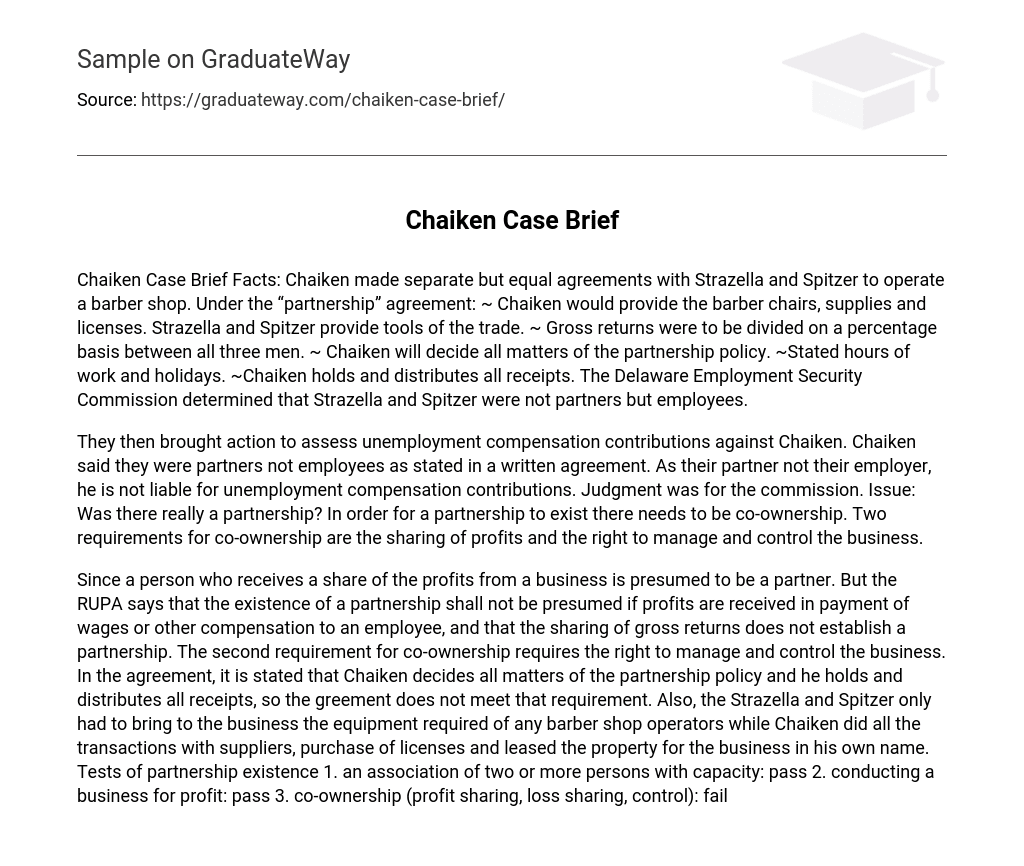Chaiken Case Brief Facts: Chaiken made separate but equal agreements with Strazella and Spitzer to operate a barber shop. Under the “partnership” agreement: ~ Chaiken would provide the barber chairs, supplies and licenses. Strazella and Spitzer provide tools of the trade. ~ Gross returns were to be divided on a percentage basis between all three men. ~ Chaiken will decide all matters of the partnership policy. ~Stated hours of work and holidays. ~Chaiken holds and distributes all receipts. The Delaware Employment Security Commission determined that Strazella and Spitzer were not partners but employees.
They then brought action to assess unemployment compensation contributions against Chaiken. Chaiken said they were partners not employees as stated in a written agreement. As their partner not their employer, he is not liable for unemployment compensation contributions. Judgment was for the commission. Issue: Was there really a partnership? In order for a partnership to exist there needs to be co-ownership. Two requirements for co-ownership are the sharing of profits and the right to manage and control the business.
Since a person who receives a share of the profits from a business is presumed to be a partner. But the RUPA says that the existence of a partnership shall not be presumed if profits are received in payment of wages or other compensation to an employee, and that the sharing of gross returns does not establish a partnership. The second requirement for co-ownership requires the right to manage and control the business. In the agreement, it is stated that Chaiken decides all matters of the partnership policy and he holds and distributes all receipts, so the greement does not meet that requirement. Also, the Strazella and Spitzer only had to bring to the business the equipment required of any barber shop operators while Chaiken did all the transactions with suppliers, purchase of licenses and leased the property for the business in his own name. Tests of partnership existence 1. an association of two or more persons with capacity: pass 2. conducting a business for profit: pass 3. co-ownership (profit sharing, loss sharing, control): fail





